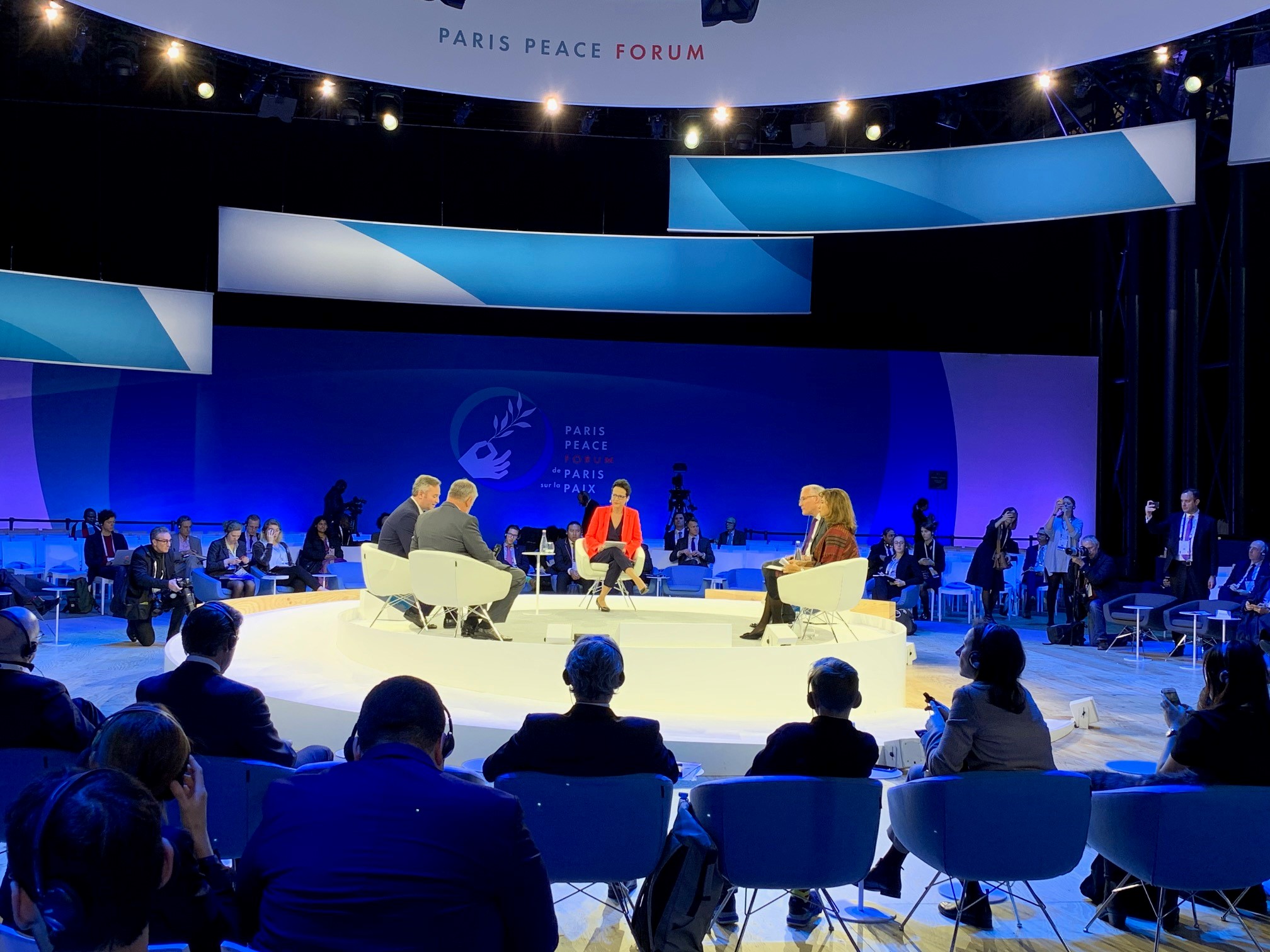Today, Jean-Baptiste Lemoyne, France’s Minister of State attached to the Minister for Europe and Foreign Affairs, announced remarkable progress toward securing cyberspace. The community of Paris Call signatories is growing and taking new initiative to thwart attacks that threaten our democracies, economies and public services. The number of signatories of the Paris Call for Trust and Security in Cyberspace, announced a year ago, has nearly tripled to more than 1,000 and now includes 74 nations; more than 350 international, civil society and public sector organizations; and more than 600 private sector entities. These commitments to the Paris Call from around the world demonstrate a widespread, global, multi-stakeholder consensus about acceptable behavior in cyberspace.
The principles in the Paris Call address real-world challenges we’re facing today, like preventing foreign interference in elections, protecting availability of the internet, and curbing attacks on critical infrastructure. Importantly, supporters are committed to working together in a multi-stakeholder model, with governments, industry, academia and civil society collaborating to protect our cyberspace from nation-state threats, including attacks on our democratic processes.
Nations now supporting the Paris Call reflect the broadening mandate for international action to address cyberthreats with 10 Latin American nations, 13 Asian and Pacific signatories and eight African nations joining with 42 European states and Canada. In total, Paris Call signatories represent almost 40 percent of United Nations member states.
Enterprises in more than 60 countries and civil society groups in more than 65 countries have now joined, with respected retailers like Migros of Switzerland and Rakuten of Japan; financial services and insurance companies like CIMB Group in Malaysia and AXA Group in France; the global logistics leader Deutsche Post DHL Group; media and telecommunications providers like Sky and Telefonica; as well as civil society organizations like the German Marshall Fund of the United States and the Vatican’s Pontifical Academy for Life. More than 60 enterprises and civil society groups in India have joined, although the Indian Government has not yet made its commitment.
One interesting trend, following a series of ransomware attacks targeting municipalities in the U.S., is that local and state governments in the U.S. have signed onto the Paris Call. New joiners include the cities of San Jose and Louisville and the states of Colorado, Virginia and Washington, bringing the number of U.S. signatories to more than 130. We believe this strengthens the case for the U.S. government to sign onto the Paris Call. The Paris Call builds on international norms that the U.S. has endorsed previously, with the addition of one new commitment that the U.S. should find easy to support: the protection of elections.
The tech sector has the primary responsibility to protect the internet and the people who rely upon it, but ultimately security and stability in cyberspace will require that governments, companies and civil society come together to find joint solutions to the challenges we are facing. With nation-state cyberattacks on the rise, the growing consensus emerging from all these groups makes it clear that cyberspace should not be exploited to inflict harm on the citizens of this world.
The promise of the Paris Call is the commitment of signatories to collaborate and build solutions across the full range of cyber challenges. In recent months, we have participated in roundtable discussions in cities around the world on how we engage in even more concrete follow-up action not just to abide by the principles in the Paris Call but to proactively advance them around the world. We at Microsoft strongly support the concept of a “Paris Call Community,” also announced today, centered around the nine principles of the Call. For example, Microsoft and the Alliance for Securing Democracy have created the “Paris Call Community on Countering Election Interference” – a multi-stakeholder project focused on implementing principle no. 3, working to identify best practices and build capacity to defend against foreign interference in democratic processes. We are also partnering with the Cybersecurity Tech Accord, the Internet Society, Global Cyber Alliance and CyberGreen to strengthen solutions that improve cyber hygiene, or basic security practices, among signatories in accordance with principle no. 7. We are committed to expanding these projects and encouraging contributions of talent and energy from everyone who wants to help realize the potential of the Paris Call Community.
If you are a government, a business in any industry, or a non-governmental organization, adding your voice to the Paris Call is a powerful way to advocate for principles and engage to help build solutions that will make your organization and ultimately the world a safer place. Head to this website to learn more and add your name and your efforts to the growing community of Paris Call participants.

